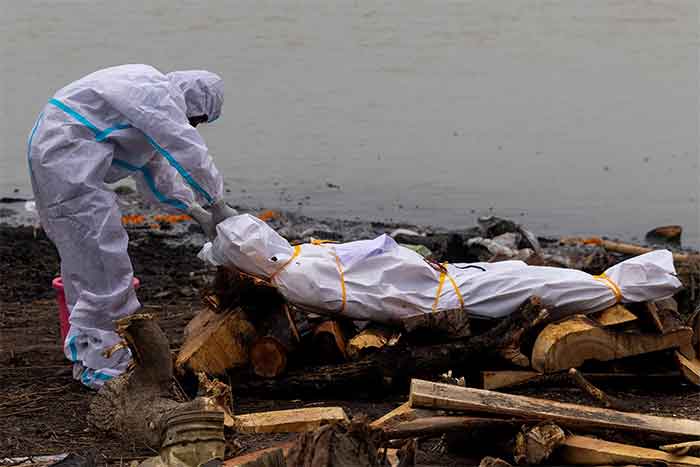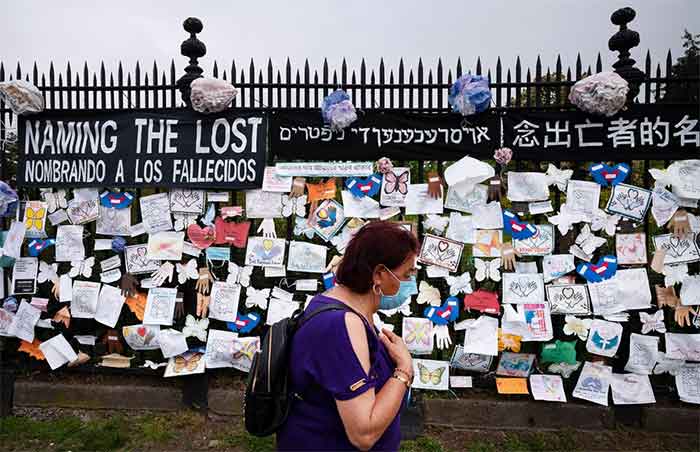
Our admiration, interest, and respect spikes for countries where the spread of Covid-19 is flattened or limited with early measures. As we track global statistics on a daily basis, any country with less than 1000 cases makes us react with Wow and How. As we scroll further down the list, those with 500 or less than 100 cases make us feel positive and we conclude: This is the place to live. These may or may not be counted as fantasy lands or ideal destinations in normal times, but when it comes to survival, we salute them for keeping citizens safe in these dark times.
When I discussed this with some friends in an online chat, they are reluctant to bat for developed and advanced nations now. Countries more efficient in the management of crisis and saving human lives, countries more benevolent towards the poor, countries with more nature-friendly policies, countries where a citizen is considered much more than a statistic are weighed against the traditional heavyweights. When the pandemic subsides and people have lesser emotional stress, perhaps the same set of questions will have completely different answers. Or maybe, the magnitude of this crisis enables us to imagine grief more closely and we are compelled to revise our assessment of growth, development, and quality living.
While the recovery phase will take its time, the nations least affected will have having a clear advantage over the severely affected ones. Whether they will be able to leverage on their strengths and give the world the option of a better life with limited but sufficient resources remains to be seen.
Economists and artists will get busy mapping the COVID-19 impact on people once the pandemic is contained. GDP predictions, recession, relief packages and stimulus will form the key discussions. The wealthy of every nation will look for growing economies to park their funds and they will come together to create rich economies — lured by maximum plough back of profits. They will look for economies with double-digit annual growth or for high single-digit economies with enormous potential to double up in the short term itself.
Job losers and fresh job seekers will migrate in search of better and stable options anywhere in the world. The top ten nations for immigrants will be another interesting development. Many new countries will enter this list and many big names will be excluded from the list. Globalisation will become a word of caution for some nations while the rest of the world will begin to harness its potential.
Tragedies inspire artists. The political class that creates global tragedies will be defeated by nature this time. Man-made tragedies kindle the angst in artists far more than the natural ones, even if the extent of damage remains the same or even greater. Being lovers of nature, the community of artists will not be ruthless towards the eco systems. They will blame mankind for being unkind, for the excesses against nature, and treat every natural disaster as the planet’s brave attempt to heal or reclaim what it lost. Artists will remind people and countries to be friendlier towards the Earth as will environmentalists, who have always emphasised harmonious co-existence with nature. This enthusiastic drive will continue with full force.
As soon as the element of greed raises its ugly head and the countries become competitive to provide a ‘better life’ or restore the ‘better’ life, the return towards normal will start. Although we live under greater threat, we have greater confidence that we will survive every kind of threat. The resumption of the predictable cycle will make us return to our lives of consumerism, to flaunt fancy gadgets or something precious to suggest our material abundance. The lessons from COVID-19 will be forgotten and buried.
Rich countries fear the death of their privileged status more than the death of thousands and millions of people. Those who survive will need to live in the same country with pride in its strengths. A country with the highest casualties will continue to say it is far below the expected numbers. If a million die, they will boast of saving many millions more. They will boost the morale of the nation with solidarity drives and keep them upbeat about a quick bounce back. It is a humongous task that brings a battery of opinion makers, public relation strategists and pliant media to play a constructive role in helping governments build – or rebuild – their image.
However, as critical assessment will have lesser tolerance, masses will expect their governments to do what is required. In such times, elected leaders will get the opportunity to showcase their potential. State leaders will grow in stature through their performance. National leaders will find suitable roles other than criticising the government. Social service measures to benefit the poor will help them connect better. Instead of lampooning the governments, people should be seen aligned with the government. These images will linger in the public mind for long. And a new class of leaders will emerge as viable alternatives –some reaching the helm through sacrifice, some reaching it through service.
It will not matter whether democracies deliver the best care or totalitarian regimes perform better. Any kind of governance will find resonance if the citizens conclude their leaders prevented severe loss of human lives. At the end of the day, survival matters. The political class has understood it is not only important to do enough, but it is equally important to be seen you are doing enough. When one game seems lost, the other has to be won.
Global leaders are trying their best to tell their citizens they have a responsive and proactive government. When elected leaders get affected by the virus, they appear vulnerable as individuals. When they get cured faster, they prove their stronger ability to fight and survive. A subtle message that the nation is safe in their hands.
Devraj Singh Kalsi works as a senior copywriter in Kolkata. His short stories and essays have been published in Deccan Herald, Tehelka, Kitaab, Earthen Lamp Journal, Assam Tribune, and The Statesman. Pal Motors is first novel.
Originally published in Borderless Journal
SIGN UP FOR COUNTERCURRENTS DAILY NEWS LETTER
















































